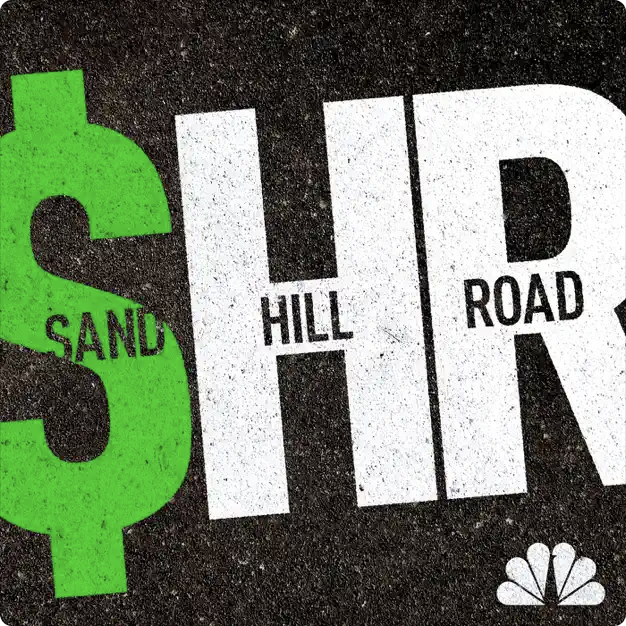'Leadership Series' Part 2 - Conceiving The Inconceivable: Managing in a Crisis
By Fred Matera - Managing Partner Movi Partner
“It’s all fun and games until someone loses an eye” -unattributed quote from ancient Rome.
I have spent most of my career running trading, capital markets, and investment businesses. I was a trader during the Asian Financial Crisis, Russian Financial Crisis, the Dot-Com blow up, ran a credit derivative business during the Financial Crisis, and am currently a director of a public company that is managing through the current COVID crisis. So I have learned much from managing risk during turbulent times (having paid a reasonable tuition to acquire such knowledge!). Rather than relay personal anecdotes, I thought I’d summarize some key takeaways. I hope these are helpful:
Threats to your enterprise can come from sources that are shrouded and not widely understood at senior or policy-making levels.
While the causes of the Financial Crisis are many and beyond the scope of this blog, the systemic risk to the financial system was driven by $1 Trillion or so off-balance sheet credit derivatives that were betting on the US housing market. Policy makers didn’t understand how these synthetic CDOs worked and how they spread financial risk. The magnitude of the losses caught virtually all of our leaders by surprise.
For the current COVID-19 Crisis, we have a virus never seen before whose source and prevalence was unclear. Policy Makers didn’t understand the bio-medical structure of the virus and how it spread health risk.
For enterprise risk management, you need to cast a very wide net in evaluating potential threats. In a global world, exogenous risk becomes endogenous, and your business becomes correlated with things you never imagined. Which brings us to...
Understand the core assumptions that serve as the foundation of your business.
What assumptions form the foundation of your businesses’ existence?
During the financial crisis, the largest single bet that was being made by global markets was that the US housing market would stay strong, with limited downside. The underlying assumption to that bet was that the US housing market was driven by local conditions, and as such was highly diversified. That diversification assumption was supported by history. Not since the Great Depression had real estate markets ever all gone down at once, and certainly never for more than 1 year. There was near universal agreement on this (except of course, for a few well-documented hedge funds who made fortunes betting the other way). This assumption allowed the creation of highly levered derivatives. Eliminate the assumption that local markets aren’t correlated, and the result was that you weren’t spreading your bets at all. All your chips were on the same number.
While sophisticated market participants understood the bets they were making, policy makers certainly did not. They did not see that so much of the financial system was riding on this one assumption. When the US real estate markets deviated from history, business units at all the major financial institutions took losses that in aggregate effectively brought down the system.
The current crisis is the result of something that’s arguable less conceivable than getting correlated real estate risks wrong. Perhaps our most basic economic assumption is that individuals will be allowed to leave their homes and engage in commerce. Prior to this March, did any CEO ask “how do we perform if the government mandates that all businesses close?” A scenario that was inconceivable - but one that breaks most businesses. As David Axelrod, former senior White House adviser to Barack Obama, put it:
“There’s a protocol for everything…We routinely went through drills for what to do in case of terrorist or nuclear attacks, but I honestly never anticipated a pandemic situation like the one the White House is facing now.”*
The takeaway is that the core assumptions on which your business model rests can be risks you hadn’t thought of; and that are correlated in ways you hadn’t considered. Even if you get those right, there’s more: you need to consider how those correlations change under duress.
Hedging costs money, hindsight bias is free.
There are always people warning about disaster, about low-probability events with dire severities happening, so that ex-post we can credit them with “knowing”. What we don’t focus on are the prophecies of doom that expire in silence during good times, prophecies that never pan out. Prophecies of doom are free options unless you put your money where you mouth is and hedge those events. Hedging in business could be buying insurance, put options, or being less aggressive in marketing or building your business. All of that costs money. How much conviction do you have of the disaster scenario? There are potentially huge costs in being wrong, if you hedge and disaster doesn’t strike.
Its easy to convince ourselves that “it was so obvious, of course we should have known”. Convincing ourselves that “we kinda knew this could happen” is easier than recognizing that “we never imagined this could happen”. The same ex-post exercise will happen with this crisis.
The lesson: beware of low probability but high severity events: events that have never happened but would have catastrophic consequences for your enterprise if they did. Do the cost-benefit analysis of assuming the risk vs hedging the risk and decide. Then if the disaster strikes, you can say that the company considered this as a very low probability event and decided to assume this risk. You need to disclose that these are risks your organization is taking, so your shareholders and lenders can decide how much of that risk they want to assume. Make sure your reward system does not create disincentives for proper risk management.
Defend the balance sheet. Live to fight another day.
My advice here has much more urgency for enterprises that use financial leverage to generate returns (my experience) as compared to most venture-backed businesses that are funded mostly with equity. Nevertheless venture-backed firms must manage cash burn, which is somewhat analogous to margin calls on capital that highly levered firms face. Cash is king in a crisis as revenues drop and new capital raises get more expensive. Methods of preserving liquidity will really vary based on business model, but the key point here is that you will need to move early and aggressively to protect your balance sheet.
Transact with customers. Don’t lose sight of where your market is.
Typically in a crisis, transactions cease up. Managers are guessing as to where the prices are of their products. While executing with customers provides the baseline information for you in normal times, it becomes your lifeblood in a crisis, when information is scarce. You will need to aggressively turnover your inventory if at all possible. Aggressively engage customers. Find out where the market is. Transacting at a loss provides information for you that you can use for survival. You either sold too cheaply, in which case, you found a bottom (and you can move forward), or you mitigated future losses and armed yourself with information you can use to defend the business.
Disclose, Disclose, Disclose.
Avoid ethical compromises at all costs, and beware of the “grey area. What you convince yourself is “grey” under the stress of the crisis will end up being “black”. Err on the side of over-disclosure to your stakeholders. No spin, just the facts. Bad news should be delivered early. Demand that bad news be filtered up from your managers so that you are not in the dark. Some senior people “don’t want to know” when things go bad, so they can establish deniability and blame. Don’t lead like that. If you work for someone who does, don’t let them get away with it -over disclose whether they want to hear it or not. Which leads us to the next point..
Don’t want the job too much.
When the crisis is becoming supercritical, when stress is seemingly unbearable, and fear is taking hold of your judgements, a way to eliminate fear and prevent ethical compromises is to make the assumption that you won’t personally survive the crisis in the same position. Yes, assume you have lost your job and that you wont survive the events. Once you get there mentally, fear will subside and you can then focus on doing the right thing for your stakeholders. You will be able to think much more clearly and calmly once you stop trying to save yourself and your position. There’s a great scene from HBO’s WW2 series Band of Brothers, where Lieutenant Speirs, whose heroic actions in battle are difficult to comprehend for two privates frozen in fear, explains:
“The only hope you have is to accept the fact that you're already dead. The sooner you accept that, the sooner you'll be able to function as a soldier is supposed to function: without mercy, without compassion, without remorse. All war depends upon it.”
I’m not trying to compare the stress of combat to trying to save your business in a crisis. Lt Speirs’ words are really about overcoming fear by staying in the moment, focusing on the job at hand, and eliminating all thoughts of personal benefit or loss.
You, as leader need to make the calls.
As events threaten to overtake your enterprise, delegated decisions that were made in the ordinary course of business can determine the outcome. So more decisions need to be concentrated at the C-Suite and with the CEO as the situation deteriorates. It’s generally more difficult for lower and mid-level managers to see the big picture. The CEO gets paid to make the tough calls that determine the existence of the enterprise, and more and more decision fall into this category in a crisis.
Body language matters. People are watching you.
Project confidence and calm focus; embrace honest, frank assessments. Your stakeholders are looking for cracks and maintaining credibility is key to being able to lead effectively in a crisis. Treat your people as adults and they will behave that way. The converse is also true.
When forced to lay off staff, it’s about them, not you.
Its very depressing and stressful for leaders when you have to terminate employees as business conditions deteriorate. But it’s much worse for the people losing their jobs. I think it was in 2010 when I was having lunch with someone I had fired several years earlier during the financial crisis. Over coffee I mentioned “how hard it was on me letting the team go”. Like a bucket of ice water, he hit me with: “Fred, no one cares how hard it was on you…what about us?” Lesson learned. As difficult as it is, it’s imperative to be empathetic and compassionate in delivering the message when you are forced to terminate employees. You might think you are understanding, but in a crisis you probably are not. How we treat people in the worst of times tells us more about the company’s values and about your values, than how you are when things are going great.
*Bloomberg May 14, 2020 If the President Tests Positive for the Virus, What Happens?





























